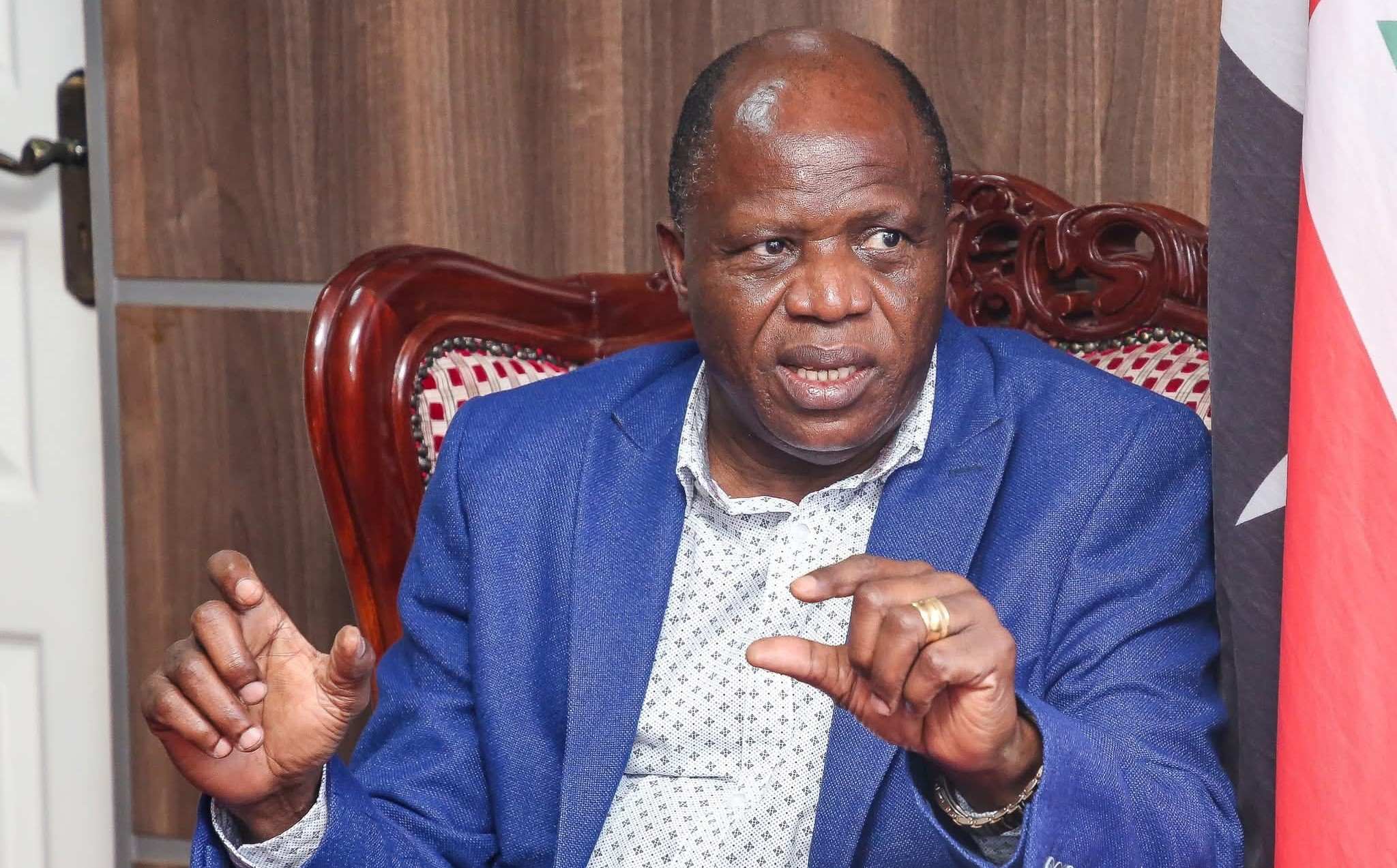Activists oppose bill limiting protests, threaten mass action

The proposed Assemblies and Demonstrations Bill 2024 seeks to bar protests on highways and other public spaces, claiming they disrupt public order.
A rights lobby group has threatened to stage protests should a proposed Bill seeking to further restrict rights to protests and demonstrations be passed by Parliament.
The Mukuru Social Justice Centre has voiced displeasure over the proposed Assemblies and Demonstrations Bill 2024, which seeks to bar protests on highways and other public spaces, arguing that such gatherings disrupt public order.
More To Read
- Kanja admits police could have done better in handling Gen Z protests, advocates for training
- Over 100 facilities accredited by SHA to provide cancer care after protests
- LSK’s Faith Odhiambo quits Ruto’s victims compensation panel over legal delays, court hurdles
- LSK faults CS Murkomen over defiance of High Court ruling on masked police officers during protests
- LSK President Faith Odhiambo vows victim-centred justice for protest and riot victims
- Families of protest victims wait as DPP examines 184 police misconduct cases
Rights activist Anami Daudi from the Mukuru Social Justice Centre, speaking to the Eastleigh Voice on Friday, claimed that the state now aims to freeze the right to protest.
“The state wants to make the right to protest a responsibility of citizens rather than of the police to protect them. The role of the police is to safeguard life and property, and when they fail to do so, they should be held accountable—not citizens, as the police have resources and intelligence financed by taxpayers. Citizens should not bear the penalty for police failures,” said Anami.
According to Anami, citizens’ role in demonstrations includes protecting themselves from hired goons and police officers intent on causing harm.
“You can’t criminalise placards and songs in a demonstration. This is how we express ourselves, and it’s part of our culture. There are urgent issues that don’t allow time to inform the police three days in advance that the community intends to protest,” Anami explained.
The group protested, arguing that no one can postpone a crisis. “The police cannot cancel a protest they haven’t planned because they don’t feel the impact of the issue.”
Anami further claimed that the government could soon acquire sweeping powers over protests, including deciding when and where they can occur, under a new bill spearheaded by Mbeere North MP Geoffrey Ruku.
The proposed Assemblies and Demonstrations Bill 2024 seeks to bar protests on highways and other public spaces, claiming they disrupt public order.
If passed, the Bill would grant the Interior Cabinet Secretary authority to impose strict regulations on how demonstrations are conducted.
Currently open for public participation, the Bill has sparked debate over its potential impact on civil liberties, especially among rights groups.
“The purpose and objective of the delegation under this section is to enable the Cabinet Secretary to make regulations to better implement the provisions of this Act,” the Bill reads.
Political leaders and activists warn that the Bill, emerging at a time when the State is alleged to be operating a covert squad, is part of a wider attempt to stifle the right to protest and silence government critics.
The new Bill creates an office of the regulating officer, empowering them to collect demonstrators’ details, impose conditions, reschedule, or even deny protests, effectively criminalising public dissent.
The proposal comes in the wake of recent Gen Z-led protests over Adani’s anticipated takeover of Jomo Kenyatta International Airport (JKIA) and the Finance Bill 2024.
In Adani Airport Holdings Ltd’s proposal to the Kenya Airports Authority, the company required legal changes favouring its takeover. The agreement reportedly includes clauses stating that Adani must be compensated for any losses due to government actions, parliamentary decisions, or public protests that disrupt project viability.
Kisii Senator Richard Onyonka criticised the Bill, arguing that it limits Kenyans’ rights and deepens state capture.
“The law aims to criminalise demonstrations, which are recognised in the constitution as a form of public participation,” he said, adding, “Adani and their local partners are pushing draconian laws to secure state capture.”
During his vetting for the position of Interior CS, now Deputy President Kithure Kindiki said that, if reappointed, he would establish designated protest areas, which he argued would help prevent violence and property damage during public gatherings.
Under the Bill, law enforcement could cancel or limit gatherings deemed unsafe. The Interior CS would have the authority to create specific protest regulations, granting the executive branch unprecedented control over public assemblies.
The CS would control notification protocols and impose obligations on event marshals. Additional mandates would include environmental protection measures and liability for damages or disruptions.
“This Bill delegates legislative powers to the CS and limits fundamental rights and freedoms,” the Bill states.
Human rights groups argue that the Bill risks encroaching on freedom of assembly. By consolidating control in the executive, it could effectively eliminate spontaneous gatherings and reduce the public’s ability to voice grievances. Critics say the advance notice requirement and criminal penalties could deter many from protesting.
Supporters of the Bill argue that it is a necessary measure for public safety, enabling peaceful assemblies without infringing on others’ rights.
Top Stories Today













































